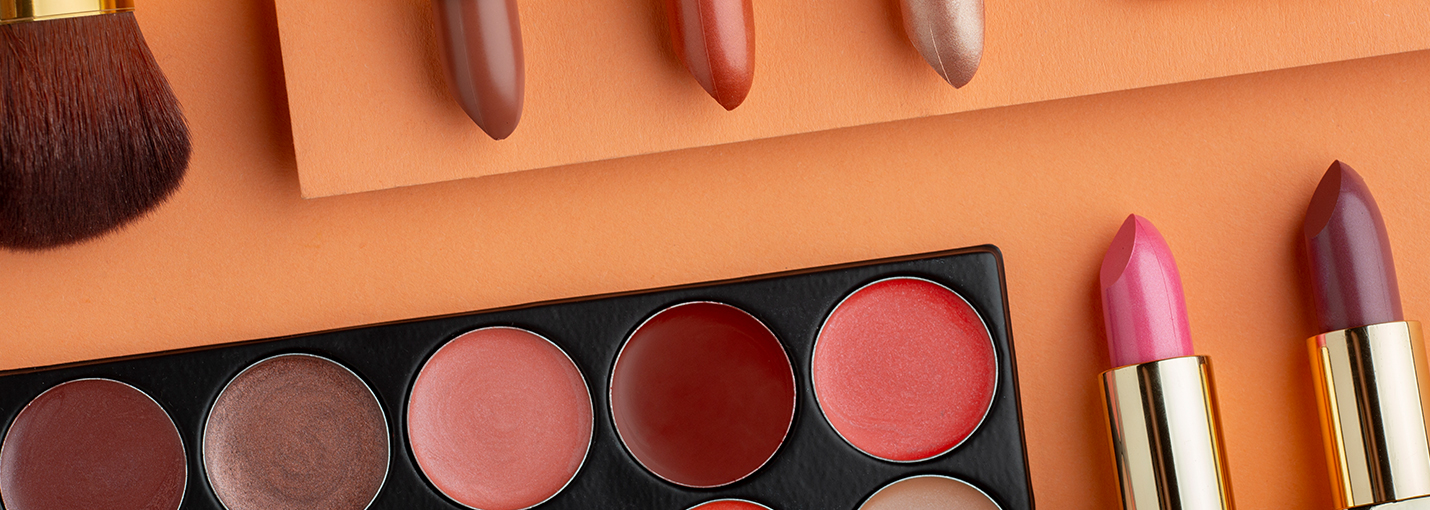HBO television is taking a deep-dive into the ‘not so pretty’ side of the cosmetics industry, showing the ugly consequences of the limited regulations for popular beauty products and cosmetics. One of the main consequences of poor regulations in the industry is the presence of asbestos in beauty products.
With more and more cosmetics found to contain asbestos, it is essential to learn why asbestos is present in makeup and the steps you can take to avoid makeup containing asbestos.
Keep reading for everything you need to know about asbestos in makeup and how you can practice more caution when buying and using cosmetic products in the future.
“The overall evidence suggests there is no safe level of asbestos exposure.”Source: National Cancer Institute (NIH) 1 |


What Is Asbestos?
Asbestos is a naturally occurring mineral.
Before we knew asbestos was dangerous, companies used it in thousands of consumer products. It’s resistant to corrosion, heat, and electricity. Construction companies used it as insulation for houses, and many homes still contain asbestos today.
Asbestos exposure can be dangerous.
Asbestos exposure is linked to the following health issues:
- Mesothelioma
- Lung cancer
- Ovarian cancer
- Laryngeal cancer
- Pleuritis
- Asbestosis
HBO’s new documentary “Not So Pretty” will take a deep-dive into the stories of those who have been affected by the presence of asbestos in their beauty products, and the horror these people have encountered from using products they assumed to be perfectly safe.
Actress and singer Keke Palmer will narrate the stories of those who have suffered infant mortality, poor brain development, ovarian failure, and more due to the lack of regulations in the beauty industry.
Limiting your asbestos exposure is advisable, as you may be placing yourself in danger of lung damage, cancer, and other health conditions.
Why Is Asbestos Found In Makeup?
You frequently find asbestos in makeup. Asbestos is not intentionally used in makeup production due to its dangerous effects. However, asbestos is a mineral, much like talc, frequently used in cosmetic products.
When talc is mined, there can be traces of asbestos found in it. When companies use this talc in cosmetic products, the asbestos in the product can harm the consumer.
Talc is in the products we use on our bodies daily, and consumers aren’t always made aware of the asbestos contained in talc. This means that consumers are exposed to chemicals that can cause cancer and other complications daily.
The talc in makeup provides a silky and smooth application of the product, which is why it is frequently used. However, consumers should be wary when using talc-based products. Johnson’s baby powder and children’s makeup at Claire’s have even been found to contain traces of asbestos.
In the U.S., there are no laws that prohibit the use of asbestos-contaminated talc in cosmetic products. It would seem inevitable that you will expose yourself to asbestos whenever you apply makeup or products containing talc. This means that those who work in factories to make talc products are exposed to high amounts of asbestos and must be aware of the dangers associated with the product.
So, what can you do to ensure your makeup does not contain asbestos?
MHow Can You Determine If Your Makeup Contains Asbestos?
To ensure you are not exposing yourself to dangerous chemicals when you apply makeup or cosmetics to your face and body, there are some steps that you can take:
- Understanding which brands’ products have been found to contain asbestos.
- Using only talc-free cosmetics products.
- Asbestos testing.
Asbestos testing is one of the least cost-effective of the three solutions, but it is the only way to be sure that your talc products are asbestos-free. You can buy asbestos sample test kits online to determine if a substance contains asbestos.
Or, if you would rather not spend your time performing chemical testing on your products, you can spend time researching brands that are talc-free and asbestos-free.


What To Do If You Have An Asbestos-Related Illness
If you find yourself with an illness caused by asbestos, you need to know your options to receive compensation. The medical bills associated with severe conditions can sink you into debt, and you need to know how to seek compensation.
If you are working with products containing asbestos and have not been fully briefed on the dangers or risks associated with asbestos, you could be entitled to compensation. The Law Offices of Justinian C. Lane at AsbestosClaims.Law are helping to seek justice for those exposed to asbestos without knowing the dangers.
If you think your illness is related to asbestos exposure, get in touch today to learn about your options. If you work in a cosmetics field and are exposed to high amounts of talc without knowing the risks, you could be entitled to compensation for your illness.
Summary
Asbestos is one of the hidden dangers in the products we use daily.
To prevent the dangerous effects of asbestos, it is advisable to avoid products containing talc, as talc can often contain asbestos.
If you work with talc daily, your employer should make you aware of the potential for asbestos exposure and the risks that come with it. If you become ill working with asbestos and haven’t been made aware of the dangers, you could be entitled to compensation from your employer.
The National Cancer Institute has stated that no amount of asbestos exposure is safe.
“Generally, those who develop asbestos-related diseases show no signs of illness for a long time after exposure.”Source: National Cancer Institute (NIH) 2 |
If you believe that you were exposed to asbestos, you could be entitled to significant compensation– money you could use to cover the costs of asbestos removal services, pay for medical treatment, and preemptively protect your physical well-being.
Compensation for asbestos injuries is often available without filing a lawsuit.
AsbestosClaims.law is your comprehensive resource for all things asbestos. We hope this information helps you. If you have any additional questions or concerns related to asbestos, including testing for exposure or how to file a claim, please get in touch by email at [email protected], or call or text us at (833) 4-ASBESTOS (427-2378) or (206) 455-9190.
For more information on the brutal consequences of poor regulations in the cosmetics industry, check out HBO’s new documentary ‘Not So Pretty’. |
And after the episode, check back in at AsbestosClaims.Law and our YouTube page to see a round up where we discuss what HBO’s “Not So Pretty” documentary got right about the dangers of asbestos in makeup, and what they may have missed.
1 National Cancer Institute (NIH), Asbestos Fact Sheet.
2 National Cancer Institute (NIH), Asbestos Fact Sheet.




